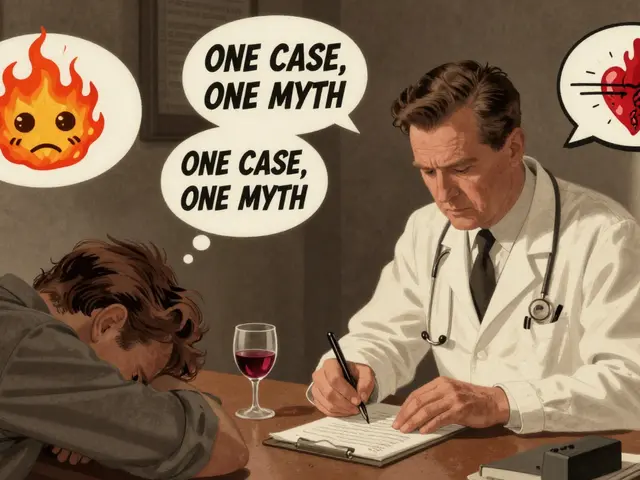Rivastigmine: What It Does and Who Should Consider It
Rivastigmine is a medication used to ease symptoms of mild to moderate Alzheimer’s disease and Parkinson’s disease dementia. It won’t cure dementia, but it can help with memory, thinking, and daily function for some people. You’ll see it sold as Exelon (capsules or oral solution) and as a skin patch. Which form is better depends on side effects, swallowing ability, and doctor preference.
Dosing and forms
Oral rivastigmine usually starts low and goes up slowly to limit nausea. A common schedule is 1.5 mg twice daily, increasing every two weeks up to 6 mg twice daily (total 12 mg/day) if tolerated. The patch uses steady delivery: start with a 4.6 mg/24 h patch, then increase to 9.5 mg/24 h and sometimes 13.3 mg/24 h if needed. Follow your prescriber’s exact plan—doses vary by age, weight, and other meds.
If gastrointestinal side effects are a problem, the patch often causes fewer stomach issues than pills. Use the oral solution if swallowing tablets is hard. Never change dose or stop the drug without talking to the prescribing clinician.
Side effects and safety tips
Common side effects include nausea, vomiting, loss of appetite, weight loss, and dizziness. Less common but important risks are slow heart rate (bradycardia), fainting, and increased urine frequency. If someone has asthma or COPD, watch breathing closely—cholinergic drugs can make breathing worse.
To reduce stomach upset with pills, give rivastigmine with food and split doses as prescribed. For patches, apply to dry, clean, hairless skin on the upper back, chest, or upper arm and rotate sites. Don’t use heat sources (heating pads, hot baths) over the patch—heat increases drug release.
Drug interactions matter: anticholinergic drugs (some antihistamines, bladder medicines) can counteract rivastigmine. Beta-blockers and other drugs that lower heart rate can increase risk of slow pulse. Always tell the prescriber about all meds, supplements, and herbal products.
Watch for warning signs: fainting, irregular heartbeat, severe stomach pain, or major behavior changes. If any of these occur, get medical help quickly.
Buying smart: rivastigmine requires a prescription. Use licensed pharmacies, verify pharmacy credentials, and avoid extremely cheap, no-prescription sites. If ordering online, confirm that the pharmacy asks for a valid prescription and has clear contact information.
Questions to ask your doctor: How soon should I expect benefits? Which form fits my routine best? What side effects should trigger a call? Simple, direct answers help you manage treatment day to day.
If you or a loved one start rivastigmine, keep a short diary of mood, appetite, sleep, and any side effects for the first month. That record makes follow-up visits more useful and helps your care team fine-tune the plan.

Exelon Rivastigmine: Benefits, Dosage, and Real-World Tips for Dementia Care
Take a deep dive into Exelon (rivastigmine), a popular medication for Alzheimer's and Parkinson's-related dementia. Get to know how Exelon works, side effects, the dosages, and real tips for caregivers. Learn key facts, compare with other treatments, and see what research says. This long-read gives practical info for those considering or using Exelon for memory struggles.
View More




